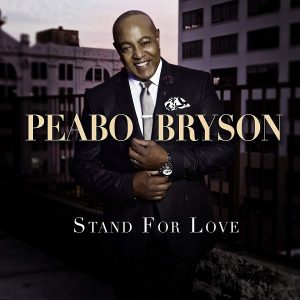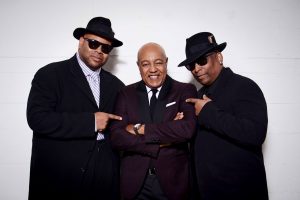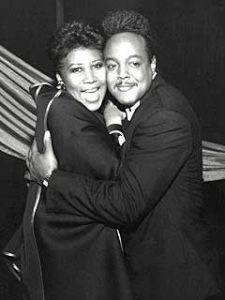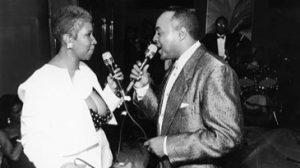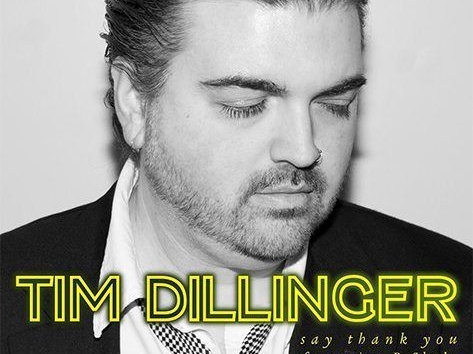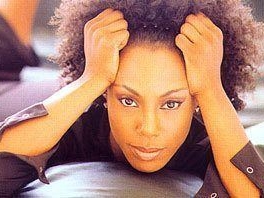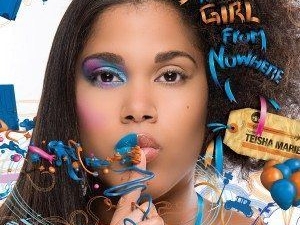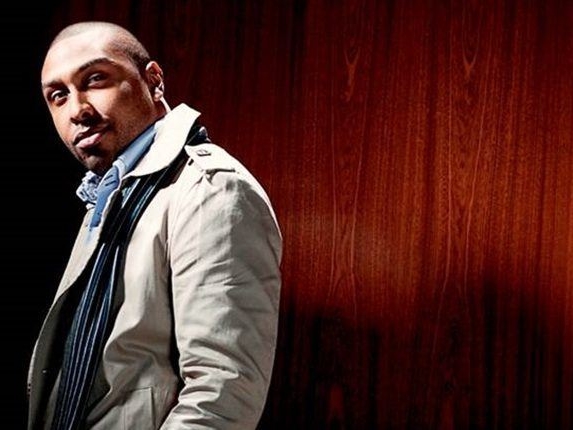Peabo Bryson generously spoke with Grown Folks Music about working on his new album with legendary producers Jimmy Jam and Terry Lewis. He shared anecdotes about his good friend Aretha Franklin and talked about his love for his muse Sade [hint: he wrote a song about her]. Bryson recounted the tale of how his perfect back-to-back duets for Disney came to be and he went deep into some real talk about why he’s still singing and recording and how no one will ever put him in a box musically or box him out because of his age. But of course, Peabo Bryson gave us his definition of Grown Folks Music. Read below and enjoy.
Jamming with Jam and Lewis
GFM: You have created a fresh yet familiar album with Stand For Love. Talk about the intention with this album.
Peabo Bryson: My quest was to find a more current version of myself. Sometimes an artist who is a composer / producer/performer is not the most objective person to survey that landscape and come up with something that’s viable. So, I put my ego aside and extended my radar out to four people that I would trust with such a daunting task as to try to make Peabo Bryson relevant in a music conversation today without destroying everything it has taken me a lifetime to accomplish. That’s a tough order [laughs] right? That was my dilemma. It’s a unique one, but it was nonetheless mine.
I reached out to Jimmy and Terry through a friend. Jimmy and Terry and I have threatened to work together for decades… literally. But, we finally got a chance to be in each other’s company and collaborate on something that was really special, unique and also crucial to me and my career at this particular point.
One of the first things I noticed about Jimmy and Terry was the absence of ego and self-importance. Their main quest is authenticity. They want to make you as much you as you can possibly be. They want to make the music as much [as possible] about you and of you– what you think, how you feel, how you see things and what you like– more than anybody I’ve ever worked with, actually. They’re not trying to make cookie-cutter versions of themselves or turn me into something different. They’re just trying to extend me in places and ways I’ve probably thought of, but wouldn’t have gone as daring as they did. They allow you, the artist, to be as involved as your skill set will take you.
Most days it was much like co-producing. When you get a chance to work with Terry and Jimmy you kind of shut up. You want to see their process and you want to observe everything that they’re doing and how they do it and why they do it. They’re just two of the finest musicians and finest music minds on this planet. That’s just what they are. It’s inherent in their nature. It’s what they do and there’s a healthy mutual respect for our gifts, our talents, our blessings and we put all those together.
They’re kind of like, ‘You hear something? Go ‘head. You write it .You finish it.’ Okay… I wasn’t really prepared for the inherent generosity that’s in them, ‘cause they don’t really care who does it so long as the end result is really great music. That’s what it’s all about. That’s what it should be all about, always. I don’t think that you’ll find that anywhere else.
But even more so than all of that– that’s the making of the music– a project doesn’t stop just because you’ve finished the music portion of it. What I like about them the most is their commitment post production. It’s their music and their stamp on it. It’s for me and of me and all that, but they won’t let it go. They don’t just do their work and walk away. They want that music to be successful. They want people to hear what they’ve done. They want people to hear what we’ve done. They want people to hear what I do… what I can do… what I still can do and what I’m probably going to do [laughs]. That’s the part I love about them the most. Their commitment to the music is from the beginning and beyond. There is no end for them in terms of their commitment to the music and to their artist.
No Countdown
GFM: You’ve been doing this long time. What did you discover new about yourself that you didn’t know in making this album? You could have toured on the hits alone. What made you decide to want to record again and what did you learn about yourself?
Peabo Bryson: Those are good questions and good points. First of all, let’s look at my culture. My culture is black and that means that I have to be ten times better and ten times faster than everybody else. That has not changed. We live in a world of, ‘What have you done for me lately?’ No pun intended. Didn’t Jimmy and Terry already say that [laugh]? They’re the ones that actually said it. We’re the ones that repeated it, but they’re the ones who came up with it.
In our culture, we don’t have the luxury of sitting back and resting on our laurels. If you wanna talk about black laurels, you must be talking about Laurel and Hardy, because we don’t really have those. Culturally, we’re kind of fickle. We are a kind of what-have-you-done-for-me-lately kind of generation… kind of people. That’s the kind of era that we live in.
Fortunately for me I don’t fit any into any of those algorithms. You can’t really pinpoint me, because I’m not one to say who and what I am. That’s not me. It’s not been my way. But, that’s a double-edged sword. It’s worked for me and worked against me, because if you’re not telling people who you are and what you do and what you’ve done, then they will assume 1. You haven’t done anything. 2. You haven’t done anything more. Or, 3. You’ve done all you can do [laughs]. I could go higher, but those are the main few [reasons].
I don’t want anybody to pigeon hole me. No one gets to stand over me and count to ten and tell me when I’m out. That’s unacceptable to me. It’s unacceptable to men like Terry and Jimmy. It’s unacceptable to anybody that has any integrity at all. My integrity is on the line at that particular point, so don’t think you know me and don’t think that I’m finished. I’ll tell you when I’m done. When I can no longer perform at the level that I perform at now, when I can’t sing those songs in the same key as I recorded them in… I’ll know it’s time. But, that time is not now [laughs].
I don’t want to be somebody that stayed too long and I don’t want to be somebody that left too soon. That’s not my thing. No one chases me off of any corner or any place that I happen to be standing. That’s just me. My blessings are mine. My gifts are divine. They were given to me and it’s up to me to take care of those gifts, to put those gifts out there and to exalt them. Not me… I’m not exalting me, but I will exalt the gift because the gifts are divine. I just know what I know.
It’s like implying that Aretha Franklin’s voice was not anointed. Her voice is different than everybody else’s. You couldn’t put her in a category, so we had to create a category of her own. She was the Queen of Soul because her music spoke directly to the soul. It didn’t make any difference who the listener was. In terms of listening and hearing Aretha Franklin it was indiscriminate.
I like to think that a part of that is me. I think part of that is me for having known her and having been close to her. I think a part of it is inherently who I am and who I was, but knowing her certainly enhanced it because she didn’t have a place that you could put her. There’s no category for it. There’s really no category for an artist like me. I don’t have a category. I just am because I am me. I’m not some version of someone else.
Memories of a Friendship with the Queen of Soul
GFM: Speaking of your friend Ms. Aretha Franklin, What fond memory or funny story would you like to share with the Grown Folks about your friend the Queen of Soul?
Peabo Bryson: Wow. You know, Aretha was such a sweetheart. She wasn’t one to gossip. Although she like listening to it she was not one to pass gossip on. It wasn’t in her nature. She liked to laugh. If something was funny, it was funny. She wasn’t going to not laugh if it was funny and it didn’t make a difference who it was… if it was friend or foe… and I don’t think she had any foes. Everybody was a friend because that’s the way she was. Everybody in her circle… everybody in her court was a friend. I think that in that she finally achieved the love that she had been searching for her entire life. I think that was the driving force behind her– to be around people who loved her for her. You can only do that based on intimate relationships… true friendships.
Wear the Mask
One of the funniest things she did to me was [when] we were doing a few dates at Radio City [Music Hall]. As you know she did not fly, so when she wanted to do something she’d call me up and I’d show up. The Queen asks you to come… you go. It’s a command performance. I’m at Radio City and she decides randomly that she wants to do a song from Phantom of the Opera. I’m like, ‘Okaaayy.’ Now I’ve got to learn the thing right quick… like right now. So, I go and learn the thing and I’m getting ready to go onstage and she goes, ‘Where are you going?’ I said, ‘I’m getting ready to sing the duet.’ She said, ‘No, not without the mask.’ I said, “You want me to wear the mask? I don’t have one.’ She just kind of whipped this the mask out. So there it was, a Phantom mask in her hand. I had to put it on. I had to wear it. What are you gonna do? What are you gonna say? ‘No?’ I doubt it [laughs].
She handled all of her business personally. It was just a couple years ago in New York that we finished this gig and she pays you. She gives you a check with your name on it. Your real name [laughs]. I didn’t think anything of it having received so many of them, but when I got to my dressing room I realized that the number was wrong [laughs]. What do you do? How do you go back to the Queen of Soul and say, ‘Hey, wait a minute. This is not the right number.’ You’ve got to do it. I knew she wouldn’t say anything or do anything and I don’t know if she did it as a joke or not, but I went to her and said, ‘I’m sorry, but did I misunderstand? Is there a misunderstanding, but this is not the number.’ She said, ‘Really, I thought it was the number.’ She’s having a go at me at this point. I know she’s having a go at me, right? I said, ‘But, it’s okay.’ She said, ’Nah, nah, nah, give it to me. Give it to me, give it to me.’ I think she knew all along that it was the wrong number. She just wanted me to come back and say something to her.
Poignant Grace
She was funny like that. When you were with her– working with her, doing anything with her or around her in any way– she always managed to make you feel like you deserve to be there without ever saying it. She had a very quiet, but very poignant grace that was in every single thing that she did. Out of all the things that I will remember I will always remember the encouragement she gave me to pursue finding that one person for me. She gave me resolve to keep going and try to find it. To stay patient, stay vigilant… just be still for a minute and you will find it. It’ll come to you. Of course I was an old man when it came, but it came [laughs].
I couldn’t be more grateful that she made me wait. As everybody knows, I’ve been engaged a bunch of times– just never been married– until now. It’s a funny thing. Being around somebody that’s been through it… and there are not many people that I’ve ever been around who have been through more than me emotionally. Aretha was one of those people. Her resolve having lived through and fought her way through some very difficult times… I will bear witness to this… that she was not one to rage against the dying of the light. As a matter of fact, she embraced the struggle and found joy in it. That’s the one thing I will take away. That is what gave me the resolve to wait, be patient, believe and have faith that the one that was meant for me would find me and I would find her, and when I did that I would be the best man that I’ve ever been.
“Looking For Sade”
GFM: Speaking of love, which is the most popular theme in music probably, your album is called Stand For Love. What I like about your album is you give us a lot of different musical flavors, but love of course is woven throughout. The writing is strong. I really appreciate that. I’d like to mention a couple of songs. I heard you on the radio… I don’t know if it was last year or maybe a couple of years ago… but you were talking about Sade. Now, you have song called “Looking For Sade”. Can you tell us who wrote that and where the whole thing came from.
Peabo Bryson: Hey look, it’s no secret that Sade buzzes my being. She just does. She always has. I’ve been intrigued with her since the first video when I watched her ride off into the sunset… like most men [laugh]. She was Arethaesque in the sense that she was very honest about her life in the music. That’s why Aretha loved the music so much. Sade loves the music because the music is her. It’s about her.
For me, that song “Looking for Sade”… I wrote it 20 years ago. I just never recorded it. I just wrote it because I wanted to write it. Sade is one of like three people in the industry I don’t know [laughs]. There’s only about three. I’m sure she knows me and I certainly know her.
The song is about how we would meet, how she would know me and how I would know her. I wanted her to know how her music affected me, what I did when her music was playing, why I played it and that I played it specifically for me when I was alone. I wrote the second verse actually for her to say how she would know me. I picked a very normal and practical way that she would know me. She’s heard me on the radio. She’s heard my music. That’s how she knows me.
The recurring theme there is I always wondered if she would pass my way. She hasn’t yet, but again I’m still hopeful. My wife knows already that if she passes my way I’m going to stop and spend a moment. My little boy is eight months old and he knows that [laughs].
GFM: So there’s no one who doesn’t know Sade is your “Boo” as we say [laughs]?
Peabo Bryson: I have friends who know her. Actually someone approached her about singing a duet with me on this project. My friend didn’t tell her that the song was about her. I’m going to put it out anyway. Maybe that would have spurred her on if she knew it was really was about her. If she came along now and wanted to sing that second verse… hey listen, we’d resurface the project. We’d say this is a bonus track now [laughs]. Something like that. She was very flattered that I wanted to sing a duet with her, but she was involved in and committed to some other things already. As we all know she’s probably working on new music as we speak. There’s still a shot. Who knows. Maybe she’ll hear it and go, ‘Wow, it’s about me!’ We sampled her, but it’s not quite the same thing.
Beauty and the Beast
GFM: When the remake of the movie Beauty and the Beast came out, I immediately thought of you. I immediately thought of you because your legacy and your success is intertwined with Disney because of the theme song and also Aladdin’s theme. You actually put Disney back on the charts. Can you talk about that time and how you came to be involved or invited not once but twice to be a part of the Disney Magic.
Peabo Bryson: Twice was a tough one because Disney has certain rules. They don’t repeat. They make these rules up as they go if they have a situation, but they don’t repeat. At that particular point they didn’t. So, I wasn’t thinking about doing the next song. I wasn’t thinking about doing “A Whole New World”. It’s a tough song to sing. It’s a tough song to record.
You have to understand something about these songs, when Celine [Dion] and I did “Beauty and the Beast” it didn’t come with a blue print or even a guide vocal. It didn’t come with any of that. It is whatever you give it. You learn the song. These are the lyrics… and you give it whatever you give it. Your interpretation is what it is. There’s not a producer in studio saying, ‘Maybe you want to sing it this way. Maybe you want to add this line here. You might wanna do this there.’ [There were] no suggestions… no anything. It’s just all interpretation. We did not meet face-to-face until we were actually in the studio.
I had agreed to do a duet with Celine a year prior to that. There was no song of course, but my A&R person Jay Landers, his father was Hal Landers who was like the king of B movies. He made Smokey and the Bandit and a bunch of other films that were very, very successful. Through his movie contacts with his father, he got a chance to see the new Disney animation which was cutting edge stuff at the time. No one was doing animation like that at all.
He said, ‘Wow, this is terrific. Is there any music?’ They said, ‘Funny you should ask. There’s a song “Beauty and the Beast”, written by Alan Menken.’ There you have it. He said, ‘Well, I have the two perfect people to record it.’ When my name went past the board at Disney at the time Jeffrey Katzenberg was still there. He saw my name on the ballot and he said, ‘I’m gonna recuse myself because I think this guy may be the greatest male vocalist on the planet.’
That kind of gave me the nod from everybody else, and then it happened. Way back in the day, I stopped counting at 28 million two decades ago. It gets to a point where you don’t even count anymore. It’s an extraordinary thing to do. Disney resurfaces every 18 months to a couple of years. They resurface the same thing so they pass that music on from generation to generation. It’s the greatest promotion on the planet. Anybody that didn’t want to do it… and a lot of people didn’t want to… a lot of people were approached with “Beauty and the Beast” and “A Whole New World” and they were afraid to do it because they were afraid that they would somehow alienate their fan base.
GFM: Was that a concern of yours at all being an R&B singer?
Peabo Bryson: Not even. First of all, you have to look at my career. It’s been diverse from the very beginning. Even if I’m doing Rodgers and Hammerstein, which I did by the way, and it stayed number one on the classical charts for months… several months actually… almost a year I believe. The thing is versatility is indispensable when it comes to music.
The first song I ever sang in my life on the stage was “This Land Is Your Land”. I was really proud of that. But, at the same time I was at concerts where Jackie Wilson and Sam Cooke were on the same stage. So, you kind of grow up with a wide variety of musical tastes because you hear a little bit of everything. I remember being a child and listening to Johnny Mathis sing. Are you kidding? And to be able to sing something with him… he called the office once and wanted to do a duet. I was like, ‘Wow!’ You don’t know these things are going to happen. They just do.
A Whole New World
Peabo Bryson: As far as the second song [“A Whole New World”], that’s a really tough song to sing for anybody. It’s a tough song to record and it’s a very tough song to interpret. I just kind of waited after a while because I saw the names on the list of the people that they wanted to have a go at it. It was kind of a precursor to the way music execs kind of look at the music business now. They think that if they put the right names together, then it will be successful because you’ve got the right names together.
But, what they fail to realize is that the name can’t sing the song and it can’t interpret. It’s just a name. At the end of the day, someone’s going to have to sing it and these are tough songs. Tough. Where as if the song is difficult like that– a female vocalist like the fabulous Regina Belle– it’s cake to her. It’s easy. She gets to use all of that Rutgers training. She gets to use all of that good stuff. And for somebody like me, if it’s music then I can sing it. I don’t care what key it’s in. I don’t care what range it’s in. It doesn’t matter. Whatever it requires I’ll be able to do it. That’s my gift… my blessing. So, I waited them out. Eventually they had to come back and say, ‘Listen, do you think you might want to do this?’ I said, ‘Sure.’ We found Regina Belle and she ate it alive. We ate it up. I’ve noticed that nobody’s tried to re-record that [laughs].
Putting Something Special in the Music
Peabo Bryson: They [Ariana Grande and John Legend] did a good job [on the “Beauty and the Beast” cover]. But, the thing about it is what makes something special is not how good of a job you do of it, it’s how much emotion you put into it. How much feeling you put into something. That is the reason why we’re still laying to rest Aretha Franklin even as we speak, because it was about the feeling that she put into something. Whatever song it was she made it unique. She made it better. She made it have more depth, more meaning, more of everything because she sang it. Simply because she sang it.
Read Marcus Aurelius. What is a thing in and of itself? What does it do? What is its nature? What is Beauty and the Beast? It is an abject lesson from Disney to all children around the world that serves as a reminder and a guide to look beyond the physical to find true beauty in anything. If there’s a better lesson to be learned, I don’t know what it is.
When you record you it, you sing it that way with that in mind. If you sing it with that in mind you’re putting something special in because you’re doing the world a service with this message and you have to keep that in mind when you’re doing it. Keep it in mind. If you can’t do that… if you’re trying to get your licks in… some of the meaning is going to get compromised. So, that’s what makes something special. You also have to fall a little bit in love with your duet partner. That makes magic that goes on tape, to me. I’ve done 46 or 47 of them, so I might have something to say about it.
GFM: There are no duets on this album though.
Peabo Bryson: I know. Well, I was holding out for Sade [laughs].
GFM: So there won’t be any more duets until she comes around [laughs]?
Peabo Bryson: [laughs] No, that’s not true. If we have to, we’ll do something I’m just still holding out for that. She’s so special. I’m just holding out for that for now… not to say that there won’t be a duet on the next project.
What Is Grown Folks Music?
GFM: What is your definition of Grown Folks Music?
Peabo Bryson: Music that has a story that needs to be told. It has information that’s pertinent to the lives that everyday people live every single day. If what you have to say musically and lyrically is not something that somebody’s going to draw something that’s important from… if they’re not going to gain anything from it… then it’s all narcissistic. It’s all about you and that’s not what music is intended to be.
One of the reasons I got into this music game is because I watched as a child… as a boy… I’m old enough to have been born in segregation, so I watched R&B artists rock a house half full of Caucasian people and half full of black folks. I watched that music and their performance transcend politics, race, religion and every other barrier known to man. I’d never seen anything like it so powerful.
Music, with the right platform, is an extraordinary tool to be used for good. That’s why the theme of love keeps running throughout the music. Because love is an ever-changing entity, and the way we look at it has to be an ever-changing kind of entity. So, something that is ever changing never gets old. I don’t care how many times you talk about it. You’re never going to repeat yourself… not really.
Grown Folks Music is music about relationships, not about hookups. Not Tinder hookups. Not Tinder in general [laughs]. At this particular point, our phones are having more fun than we are [laughs].
What’s the name of that movie starring Sylvester Stallone, Wesley Snipes and Sandra Bullock where they’re having virtual sex? Demolition Man! Well, in that alternate future, real sex had been replaced by you putting these headsets on and you sit in the room with the person and you can do whatever you want. You just don’t have actually any actual physical contact. We’re about a hair’s breadth away from that at this point because we don’t have relationships. Relationships first fell in a downward spiral when relationships became hookups instead of relationships. Relationships became like an audition. Now, it’s not even an audition. A relationship is whatever you decide you want to have or whatever you dial up on Tinder [laughs].
Grown folks music is about real relationships that people have to work at every single day. Grown folks music is about relationships that have real problems to be solved, and relationships that don’t have any problems to be solved. Some relationships work because people work at working at them. People work at being good at what they do. [They] work at being excellent toward one another. Grown folks music is about real life. It’s not about blame or how you look doing whatever it is that you’re doing, what you’re wearing or how your jeans fit. It’s about real life.
Follow Peabo Bryson:
On Twitter
On Instagram
On Facebook
RELATED POSTS
August 16, 2013
GFM Spotlight Interview: Tim Dillinger
June 17, 2011
GFM Spotlight Interview – Adriana Evans
August 22, 2013
GFM Spotlight Interview – Teisha Marie
September 20, 2011
GFM Spotlight Interview – Noel Gourdin
November 24, 2017

